Geely Increasingly Mirrors Huawei's Strategies
![]() 06/25 2025
06/25 2025
![]() 563
563
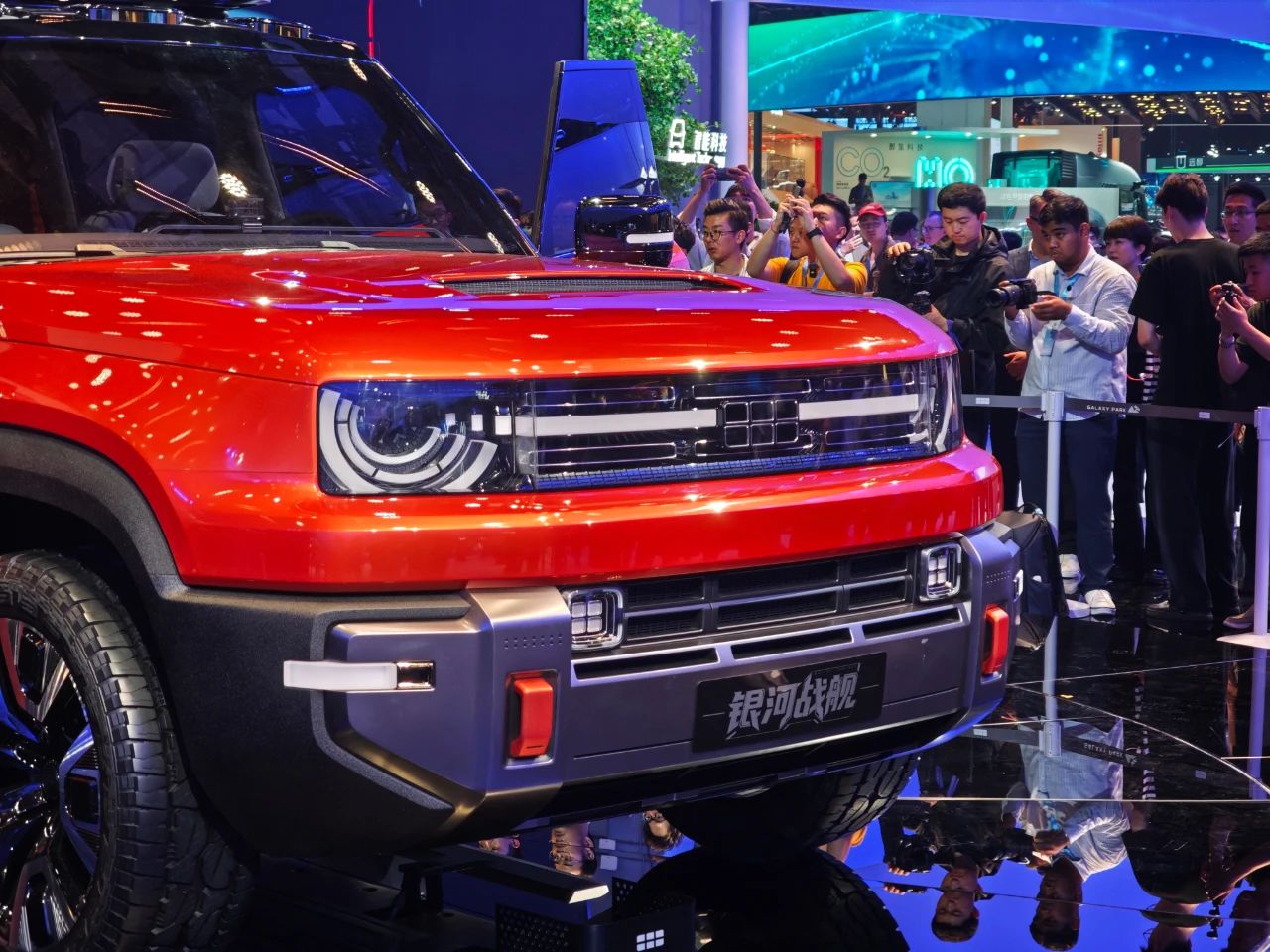
Source: YuanAuto
The rivalry between Geely and Xiaomi Auto is well-documented. As Xiaomi Auto swiftly catches up and even surpasses Geely in technology, products, sales, and reputation within a few years by poaching talent with high salaries, it's understandable why Geely might feel the pressure.
However, setting aside the talent poaching for now, Xiaomi, having emerged victorious from the fiercely competitive domestic mobile phone market, has indeed demonstrated unprecedented combat effectiveness in its cross-border foray into the automotive industry. When discussing Xiaomi's combat effectiveness, many people might initially think of its marketing prowess, but this is merely one facet of its comprehensive systematic capabilities.
Without aligning accurately with Porsche in terms of design and performance, or quickly matching after-sales service capabilities suitable for 200,000-300,000 yuan models, relying solely on marketing would be insufficient for the SU7 to sustain its market leadership. For most traditional automakers to compete with Xiaomi, a comprehensive upgrade of their own system capabilities is paramount.
Geely is well aware of this. Hence, this 28-year-old "veteran" automaker has chosen Xiaomi's old rival, Huawei, as its benchmark for learning.
01
Pixel-level "Homage" to Huawei
If you peruse the Ministry of Industry and Information Technology's new car catalog for June, you'll notice that Geely is preparing to launch a new car named Haoyue R7, which coincidentally shares the same name as a model under Huawei's Hongmeng Intelligent Driving. Why "again"? Because in May, Geely just released the all-new flagship SUV Yinhe M9.
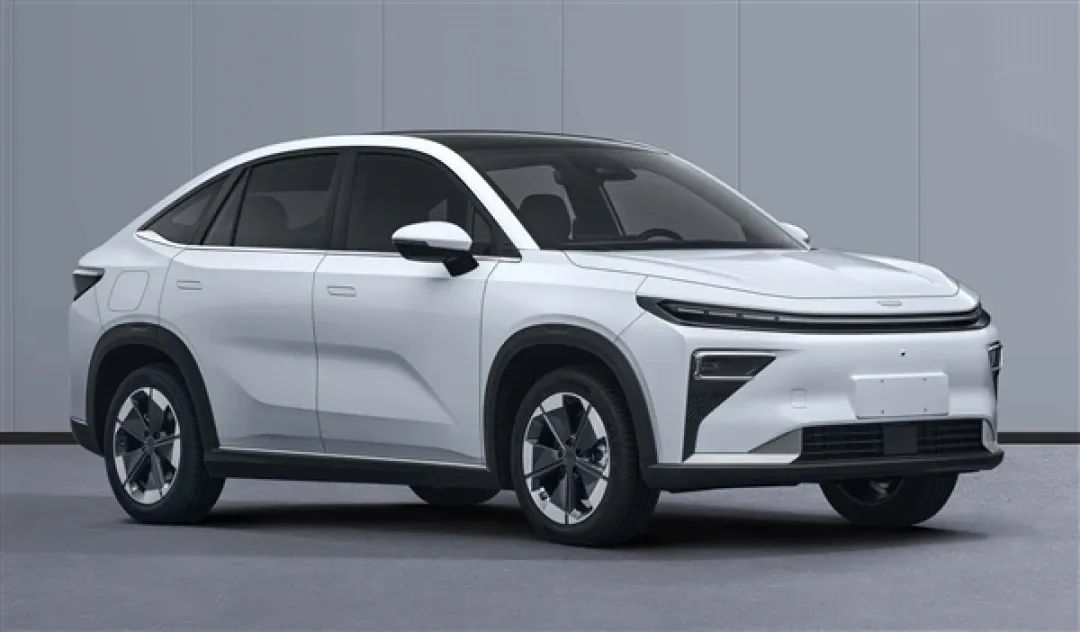
Within the Geely family, M and R are unprecedented product series names, and M9 and R7 happen to be the names of the two main models currently promoted by Huawei's Hongmeng Intelligent Driving. Besides the name similarity, the Haoyue R7 is also Geely's first extended-range hybrid vehicle, but unlike the series of best-selling extended-range hybrid vehicles in the Huawei camp, this model is a battery-swapping vehicle that supports battery leasing mode sales.
While there's a possibility of a name coincidence, Geely's venture into the extended-range market sends a more convincing signal. Notably, before this, Geely's hybrid new energy vehicles all employed a technical route with dedicated hybrid transmission.
Apart from moving closer to Huawei in terms of products, Geely is also recruiting Huawei executives.
According to an announcement issued by Chongqing Qianli Technology Co., Ltd. on June 21, Wang Jun, the former President of Huawei's Intelligent Automotive Solutions BU, has been appointed as the company's Co-President. According to Tianyancha App, Chongqing Manjianghong Private Equity Investment Fund Partnership, the major shareholder of Qianli Technology, is an enterprise indirectly controlled by Geely Holding Group with about 51% stake.
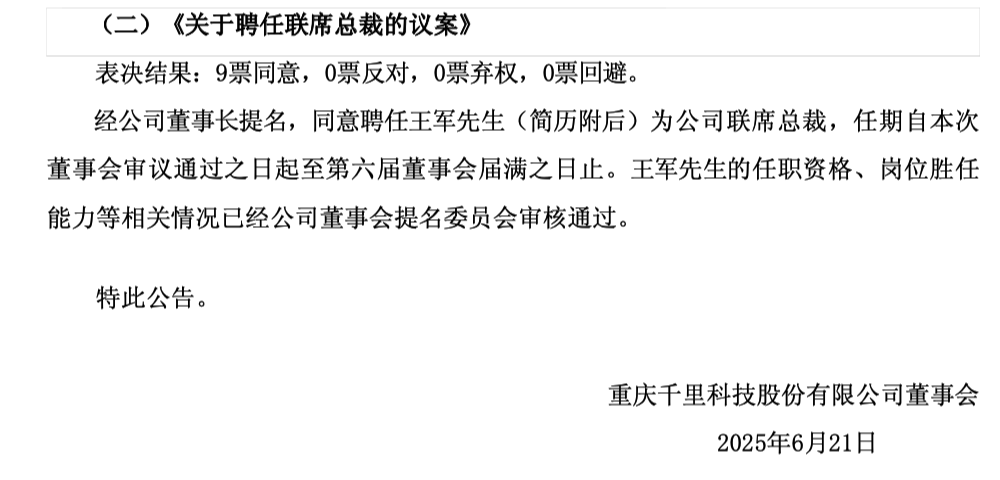
Within Huawei's system, Wang Jun was once the second-highest-ranking executive in the automotive business after Yu Chengdong. In May 2019, Huawei established the Intelligent Automotive Solutions BU, with Wang Jun as its first president; in 2021, Yu Chengdong was appointed as the CEO of the BU, and Wang Jun transitioned to COO and concurrently served as the president of the intelligent driving solutions product line.
Later, Huawei's automotive business evolved into a three-pronged model comprising AITO (the predecessor of Huawei Hongmeng Intelligent Driving), HUAWEI INSIDE, and component supplier mode. Among them, Wang Jun headed the HUAWEI INSIDE-related businesses.
For Geely, Wang Jun's joining not only directly bolsters industry confidence in its Qianli Haohan Intelligent Driving System-related businesses but is also significant in more effectively introducing and implementing Huawei's characteristic methodologies such as IPD (Integrated Product Development) and IPMS (Integrated Portfolio Management System).
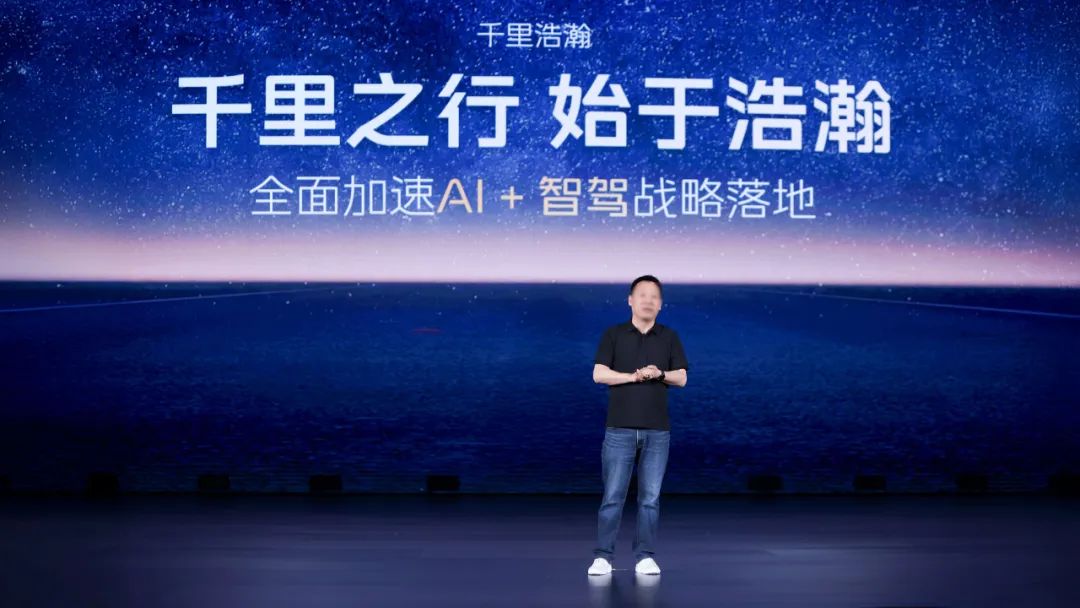
"Many automakers are learning Huawei's IPD integrated product development process, with GAC being a recent example and Ideal and Xpeng having learned it earlier, and the results are evident," an industry insider familiar with Huawei's IPD told YuanAuto on June 24. Although automakers are introducing IPD, very few have truly grasped its essence.
"Many have learned the process but haven't internalized it. In fact, even Huawei's own IPD has been continuously evolving. Only by consistently using IPD to complete multiple full cycles of new car projects and tailoring the process to suit oneself can one be considered to have mastered IPD," the above person added. Besides IPD, Geely has also adopted Huawei's rotating CEO system, with a slight difference being that there is a CEO with the highest decision-making authority above Geely's rotating presidents.
02
Geely's Blind Spot
Returning to the competitive landscape between Geely and Xiaomi Auto. From a broad perspective, Geely, which achieved a year-on-year revenue growth of 25% and a year-on-year net profit growth of 264% in the first quarter of 2025, is making significant strides forward, and Xiaomi Auto isn't yet a direct threat. However, from a market segment perspective, Xiaomi's performance far surpasses Geely's.
Relying on cost-effectiveness, Geely has long dominated the sales rankings of new energy vehicles and fuel vehicles this year. The Xingyuan at the 100,000 yuan level and the Xingyue L at the 150,000 yuan level have emerged as unchallenged sales champions in the pure electric and fuel vehicle markets, respectively. However, when focusing on the 200,000-300,000 yuan market segment where Xiaomi is positioned, Geely is lagging behind.
Sales data reveals that in the new energy vehicle market above 200,000 yuan in the past six months (December 2024 - May 2025), only one model from the Geely camp, the Zeekr 7X, entered the top 20 in sales, with a cumulative sales volume of 33,463 units. Over the same period, Xiaomi's SU7 ranked second with sales of 158,282 units, second only to Tesla's Model Y.
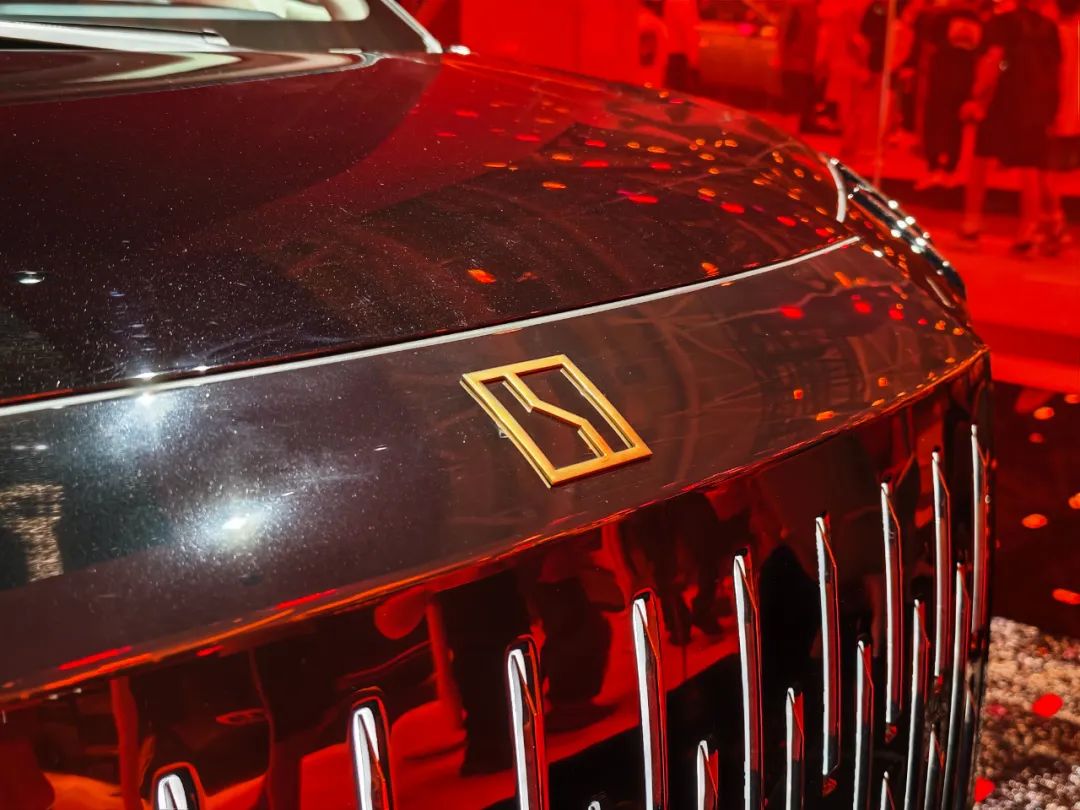
Xiaomi's SU7 sales of over 158,000 units in the past six months even surpassed the entire Zeekr brand, which sold approximately 97,000 units over the same period. During the statistical period, Zeekr mainly had six models on sale.
The pure electric vehicle and even the new energy vehicle market above 200,000 yuan have become a noticeable blind spot for Geely. And this may precisely be the reason why Geely is swiftly seeking inspiration from Huawei, as Huawei's Hongmeng Intelligent Driving's AITO M9 and M8 have become market benchmarks for high-end new energy vehicles.
"Geely will take aggressive actions in the new energy vehicle market above 200,000 yuan in the second half of the year. In addition to Geely Yinhe M9, there will also be Zeekr 9X, 8X, and the plug-in hybrid version of Lynk & Co Z10, mainly focusing on the hybrid track," a source close to Geely told YuanAuto on June 24. He is relatively optimistic about Geely's newly mentioned models because they all avoid Xiaomi's strong pure electric track. "Xiaomi's YU7 should be very powerful, so it's actually wise not to compete head-on with it."
Some images are referenced from the internet. Please inform us for removal if there is any infringement.







